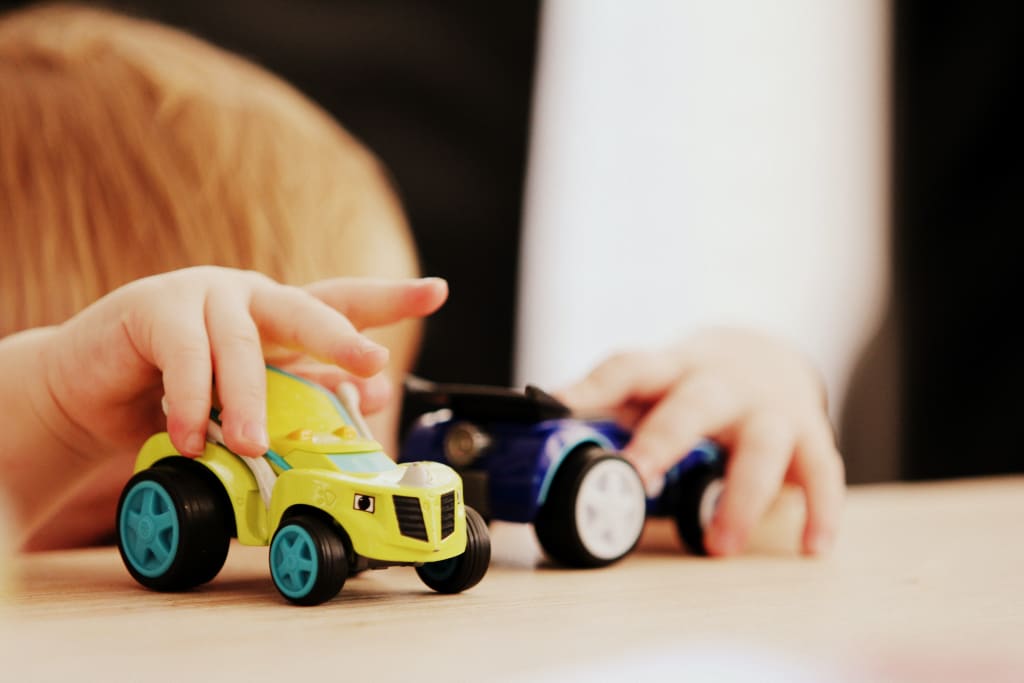
"I thought my child was just developing a little slower compared to his peers, and never thought it was this disease..."
Outside the clinic, Ms. Sun said while holding back tears from running down her face. Although she didn't know exactly how it would affect her child, there are often characters like this on TV shows and she knew the impact on her child's normal life would be great. When she heard the word autism, she felt like the sky was falling.
When she took Xiaoping downstairs, she often ran into other parents with their children and would chat: "Can your child crawl yet? Is your child getting teeth? Have you started to add supplementary food?" The first thing that I want to do is to ask my child to walk last month, when did your child walk? It's not a comparison, it's just a common topic for families with children, and to a certain extent, it can avoid embarrassment.
The children of Xiaoping's age can talk, but Xiaoping can't. Before the age of 2, she would learn to talk, but after that, she stopped. At first, Ms. Sun was also anxious, but her mother-in-law thought it was normal, do not to move to the hospital, as the saying goes, your people talk late, she later felt that after all, the development of each child is different, talk a little late may also be normal, so did not take it too seriously.
But as Xiaoping grew up day by day, she felt that something was wrong, the child would barely look at herself, seemed to have no concept of what she was saying or doing, and was always crying. She became anxious again, although some people said it was nothing, perhaps the child was just more introverted, but she did not feel comfortable, so she took the child to the examination this time, but she did not expect the final result made her collapse, and also blamed herself for not paying attention earlier.
What is autism in children?
It is also called autism, and simply put, it is a developmental disorder in children.
Probably many parents have noticed that their children are not talking and are very quiet at the age of two or three, and they start to get anxious and worried because they are not like their peers. Others will think that autism means not talking and ignoring people. But is this the case? The truth may be different from what many people think.
There are differences in whether a child speaks earlier or later
Generally speaking, when does a child speak?
One or two years old is an important time in their language development. Many children can know the meaning of some of the words their parents often say, such as eating, by the time they are over one year old. Some children may not be able to understand well by the age of two, parents should not be too anxious at this time, observe and see, if after that still can not say that it should be noted, or slow development.
However, this does not mean that the child has autism, each child's development is not the same, and will be affected by several factors, some may just not express themselves very well, and some may be related to a disease.
Children who do not speak or speak late do not have autism
Generally speaking, a child is only a little behind in speaking compared to children of the same age, but it does not mean that other development is abnormal. However, in the case of the disorder, this is not the only thing that can happen, but other abnormalities can also occur.
Children with autism can talk to others, but rather have an underdevelopment disorder. It can cause a delay in language development, but not directly the other way around.
In general, children with autism often show the following two major abnormalities.
(i) Social impairment
For example, they ignore the greetings of others, avoid eye contact, do not want to stay with others, and do not want to share their interests or some feelings, happy or sad, with others.
(B) Repetitive behavior stereotypes
Generally many children like toy cars, dolls, etc., but they are not interested in this, and like to play with strange things, such as wheels, sticks, etc., and play the same way every time, with obvious repetitiveness.
When the child gets to the point where it is almost time to unlock a new skill but does not know how to do it, it is recommended to pay attention to it, but don't worry too much first. If it still doesn't work after that and is accompanied by some other abnormal manifestations, pay attention to it, and to be on the safe side, you can take the child for a relevant examination to determine it.
If the abnormal performance of the child has continued but did not pay attention to it, the delay will bring more impact, such as the following.
-It can affect the child's ability to learn in the future, and his or her intelligence may be affected.
-This is also very detrimental to the child's mental health, and this effect may even be with them for the rest of their lives.
Children are the flowers of our country and are precious to every family. I believe that every parent wants their children to grow and develop normally and healthily, and it is important to take into account the frequent abnormal performance of their children.
Children with autism mainly take educational interventions and medications are auxiliary. In this regard, parents should pay more attention to it, and it is recommended to interact with their children often and happily, to be more present in their surroundings, to play some parent-child and social games, to take their children to exercise together often and to do some outdoor activities.
In short, for autistic children, we should be friendly and relative, give care and love, understand and respect a little more, alienate a little less, pay attention to any long-term abnormalities in the child, and screen them promptly. In addition, we should have a proper understanding of autism as a disease and its effects on the human body.
About the Creator
Haas Tash
No need for deliberate pandering.






Comments
There are no comments for this story
Be the first to respond and start the conversation.